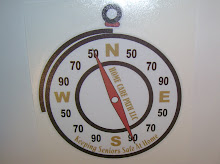Advocacy has become an essential part of the senior care service for several important reasons. The Health Care System is experiencing an increased number of users. The Health Care System is in transition to prepare for the increased number of users. Fiscal contraints will demand more of the seniors using the Health Care System.
Today's senior care advocacy is built on the desire to protect the interests of the individuals who are unable to effectiviely participate in the Health Care System. The senior may lack the skill, knowledge, and energy to be effectively served by providers in the health care system. The Health Care System is adjusting its practice model to to better serve the increased number of users. The providers in The Health Care System are in the midst of change which is disruptive to medical staff as well as seniors. Conservative health business labor budgets can lessen the staff available to help when it is needed.
Medical staff continue to recommend seniors have a regular care giver who can attend all providers visits. Home Care Path www.homecarepath.com staff accompany seniors to provider visits to improve follow through in the home setting. Provider visits usually involve the senior telling the nurse all the current medications being taken. The nurse then checks the seniors vitals, blood pressure, pulse, respiration, body temperature, and level of pain. The senior is asked to state the chief complaint, what the problem is for today. The nurse will want to know exact facts regarding the problem. Like when the problem was first noticed, what seems to worsen the problem, etc. The interview process can take time, something that is in short supply with the changes the Health Care System is expereincing.
Many seniors will have multiple chronic symptoms being managed by daily medications. Seniors can have more symptoms, diagnosis, and take more medications with increased age. Seniors may experience some changes with memory. Often described as slow recall. So besides having more medications, symptoms, and diagnosis, the senior can experience memory loss, diffuculty with recall. The provider at the medical visit will want an accurate picture of what is taking place in the home to prescribe an effective treatment to help with the problem.
Seniors can expereince functional changes in the bodies ability to physically move. Slow or no ability to walk. Loss of vision can result in limited ability to read. Simply getting in to the providers room for the visit may take extra time and assistance. Extra time, and additonal staff to help, may be in short supply in todays Health Care System.
Home Care Path staff www.homecarepath.com are taught to participate in the advocacy component of senior care service. Staff take extra time in the home setting to collect adequate and accurate information. Staff collect adequate information to arrive at a written starement of the problem. The staff and the senior interpret all the collected information to formulate an accurate and acceptable explanation of the problem. Both the staff and the senior must come to an agreement on what the problem is. The senior and staff are now ready to present the problem to the medical provider at the Health Care System visit. During the medical visit the senior, the staff, the nurse, and the medical doctor agree on a recommended solution to the problem. The medical doctor prescribes a treatment for the problem. Home Care Path staff encourage the senior to comply with the prescribed treatment. The success of the visit depends on the senior participating in the prescribed treatment correctly. At home staff continue to encourage the senior to engage in the prevention activities. The Home Care Path staff provide ongoing support and direction to insure the senior benefits from the prescribed treatment.
From this description of the advocacy process one can see how the senior can benefit on all levels. The senior begins to sense purposeful results from the effort involved in the medical visits. The Health Care System provider staff become more comfortable in their ability to effectively serve the seniors ongoing needs. The home setting becomes mores consistent, stable, and can be a health giving dwelling.
Tuesday, August 10, 2010
Subscribe to:
Post Comments (Atom)

Home can be a great place for assisted senior care. Nurses can rotate shifts, or one live onsite continuously. Having familiar people and surroundings can have an immeasurable impact on psychological health. comforcare.com
ReplyDelete